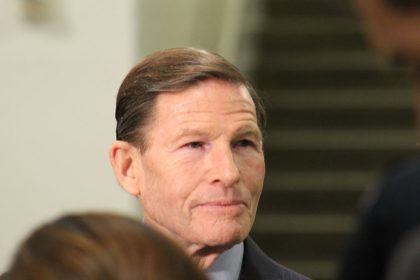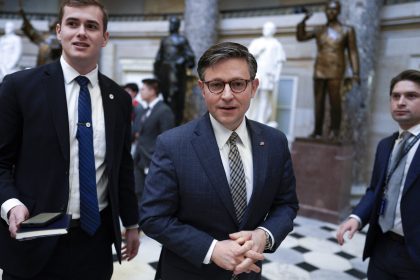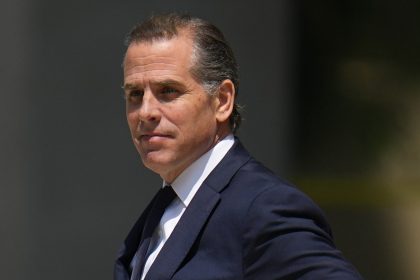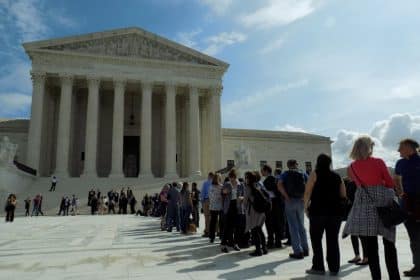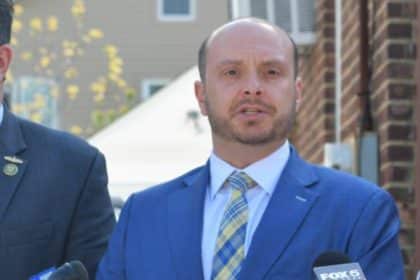Tax Hikes in a Pandemic: Some States and Cities Say Yes

WASHINGTON — Nashville City Councilman Bob Mendes tried unsuccessfully for two years to get his booming city to raise property taxes to address its growing municipal needs.
Then came COVID-19. The City Council last month approved a 34% increase.
What changed?
“We’re broke,” said Mendes, who identifies as a Democrat though the council is nonpartisan.
Cities such as Nashville, Tennessee, and states from New York to California have raised taxes or are considering it amid a pandemic that has crushed the economy and thrown state and city budgets deep into the red.
Unlike the federal government, 49 states (Vermont is the exception) and many cities must balance their budgets. And there’s only so much they can cut, particularly when the double punch of coronavirus and civil unrest has stretched public services.
Congress is debating a package of between $1 trillion and $3 trillion in additional aid for states and cities. But the final amount and the rules for spending it are uncertain, leaving states and localities in a pinch.
Moody’s Analytics chief economist Mark Zandi told reporters in a recent conference call that if state and local governments don’t get federal support soon, there will be “substantial budget cutting and (governmental) job loss.”
“We will lose at least another 1.5 million jobs,” Zandi predicted. “It’s not a blue state, it’s not a red state, it’s all states. Every community is going to struggle.”
The liberal Center on Budget and Policy Priorities, based in Washington, D.C., estimates that state budget shortfalls will total $555 billion over fiscal 2020-2022. CBPP President Robert Greenstein, in the recent conference call with reporters, said that number portends “quite severe budget cuts at the state and local level … causing a lot of hardship.”
California Gov. Gavin Newsom in late June signed a $202 billion budget temporarily scrapping certain tax breaks for medium and large businesses. The change will pick up an estimated $4.4 billion, in a stab at closing some of the projected $54 billion budget deficit.
New York state lawmakers are eyeing higher income tax brackets for multimillionaires.
On July 6, the Seattle City Council passed a tax on businesses that spend at least $7 million in annual payroll, citing the pandemic. The tax could apply to about 800 businesses and raise more than $200 million a year toward an estimated $378 million budget gap.
And the District of Columbia Council this month voted to raise the gas tax and eliminated some tax breaks for businesses to raise $63 million toward an anticipated $800 million budget hole.
Democratic Mayor Muriel Bowser had suggested she could cut enough spending to make up the difference, but the Council disagreed. It approved a gas tax increase of 10 cents a gallon, an $11 million cut to a tax break for technology companies and a 3% tax on the sales of advertising and personal information. The Council also made estates worth $4 million subject to the estate tax, down from estates worth over $5.6 million.
In Nashville, Mendes said the city was in tough shape financially even before COVID-19 laid waste to the city budget. Before the pandemic, Nashville was listed “dead last of the 25 biggest cities in terms of rainy-day funds,” he said in a telephone interview.
Without a sizable rainy-day fund, Mendes said, Nashville had to choose between “taking a machete to the size of city government by furloughing thousands of people, or a (property tax) rate increase.” He had proposed the increase last year and the year before but had no luck. This time it passed 32-8.
One opponent, Councilman Russ Pulley, described Nashville’s budget situation as a “hot mess” but said he would have preferred budget cuts or increases in sales taxes or “sin taxes” on cigarettes or alcohol, rather than the property tax hike.
“I was ready to support a reasonable tax increase, but then the pandemic hit. We lost a lot of sales tax revenue and small businesses are doing what they can to stay afloat. Now we are going to hit them with an even bigger tax increase? Jeez.”
Pulley crystallized the dilemma facing cities and states: The same economic meltdown that has blown holes in public budgets is crushing many small businesses and residents.
In Chicago, Democratic Mayor Lori Lightfoot indicated a property tax increase is on the table there as well, absent enough federal money to cover what is expected to be a $700 million shortfall.
That argument also is likely to surface in the debate over a California initiative, on the ballot this fall, that would repeal a 1970s-era local tax cap for commercial property, and would raise an estimated $12 billion annually for schools. In San Francisco, voters in November also will consider raising local taxes on high earners and stock compensation.
Meanwhile, the Public Policy Institute in California found in a May survey that 60% of likely voters say the governor should not include tax increases in his latest budget.
“Governor Newsom’s plan to close a multibillion-dollar state budget gap is receiving mixed reviews, while tax increases are opposed by a two-to-one margin,” said Mark Baldassare, CEO of the institute.
In New York, state Sen. Rachel May, a Democrat, is promoting a bill that would impose new, higher income tax brackets on the very wealthy, raising the rate for those who earn more than $5 million to 9.32%, those who make more than $10 million to 9.82%, and those earning more than $100 million to 10.32%.
New York’s highest state income tax bracket is currently 8.82%. As of April 25, the New York State Division of the Budget projected a $13.3 billion budget shortfall.
In a phone interview, May said her idea had attracted little support before the pandemic, but now she has a number of co-sponsors, including one Republican, Phil Boyle of Long Island, and is picking up more endorsements.
May said she proposed the bill to tackle income inequality in New York. “Income inequality hurts everybody,” she said. “If you shift taxes away from the very wealthy … it falls on the poor and the middle class.” But her bill got scant attention.
Now? “I have 30 co-sponsors on the bill,” she said. “It’s bipartisan, which is remarkable.”
Boyle, the Long Island Republican who embodies the bipartisanship, described himself in a phone interview as a “fiscal conservative. In normal times I never would have supported higher taxes. These are not normal times.
“Asking the ultra-wealthy to pay a bit more during this economic crisis, rather than the constituents of mine who are out of work and suffering financially, is the right thing to do.”
Boyle said while he supports the higher rates to “get through the crisis,” he would like them to expire “on the other side of this hill.”
But David Friedfel, state studies director of the Citizens Budget Commission, a think tank that advocates for keeping New York “competitive” with other states, said higher taxes on the wealthy would push many of them to flee New York for lower-tax states.
Friedfel acknowledged that taxes are not the only reason people move to a different state, but “when wealthy individuals make location decisions, taxes play a part.” He said the top 1% of taxpayers pay about 40% of the total income taxes in the state, which amounts to about $20 billion.
“If 1% of that 1% leave, $200 million of revenue is gone,” he said. “At a certain point, more people will leave than the revenue will generate.”
———
©2020 Stateline.org
Distributed by Tribune Content Agency, LLC.
















